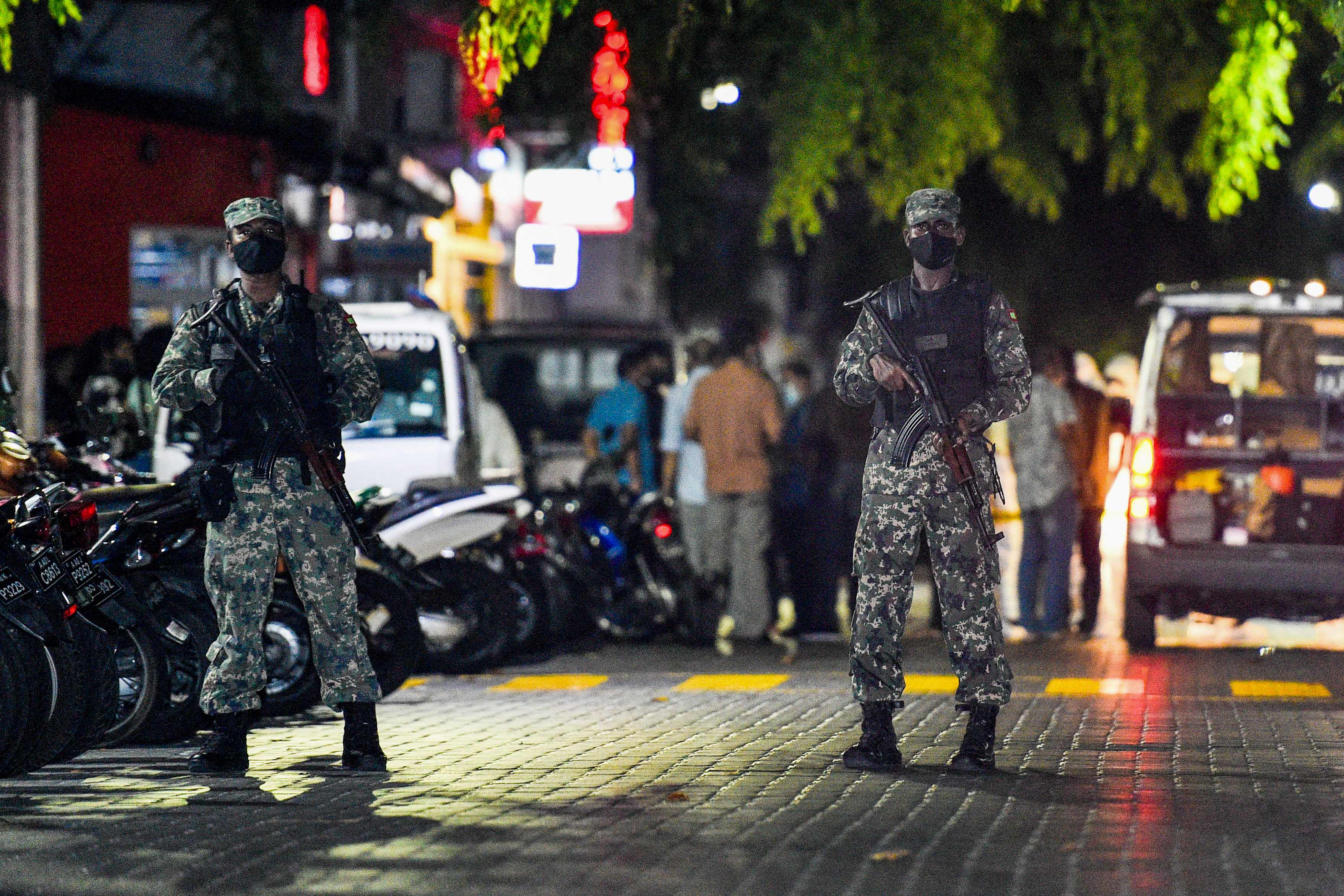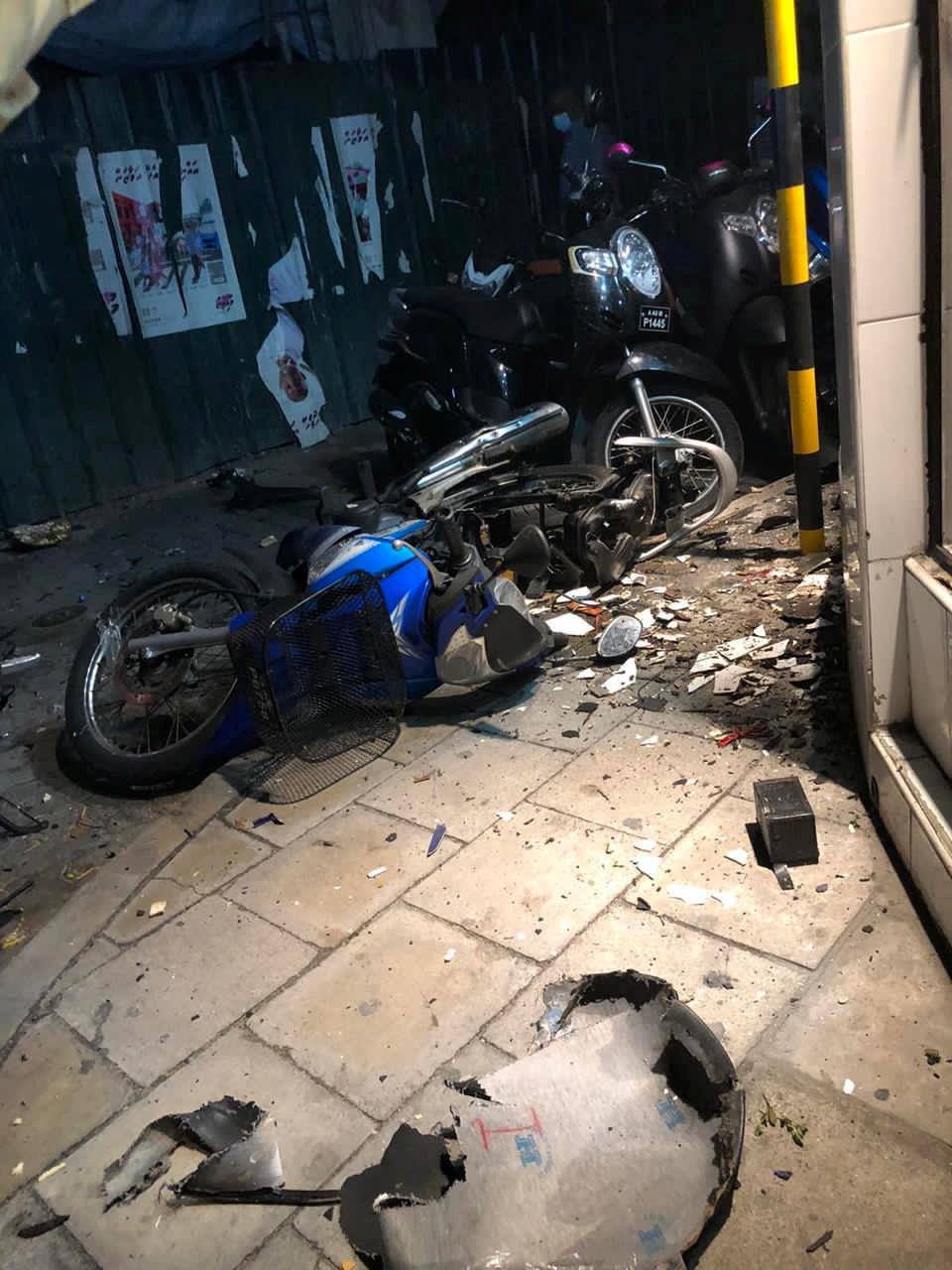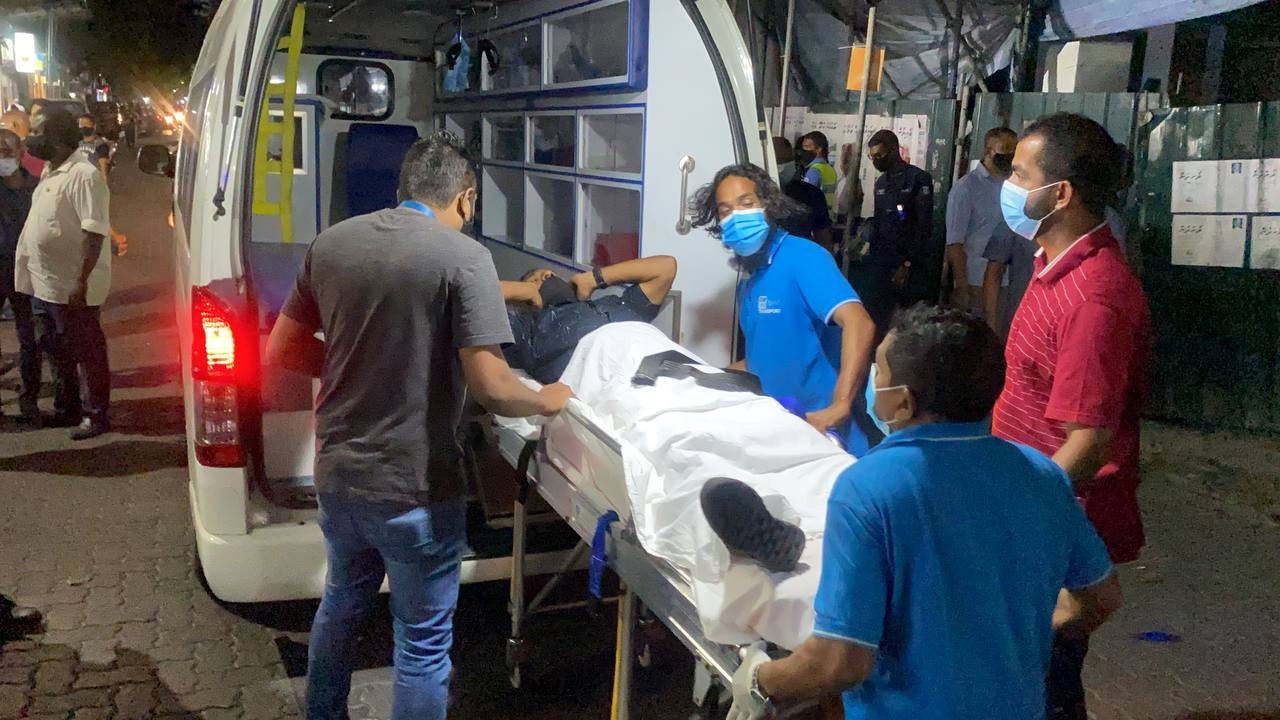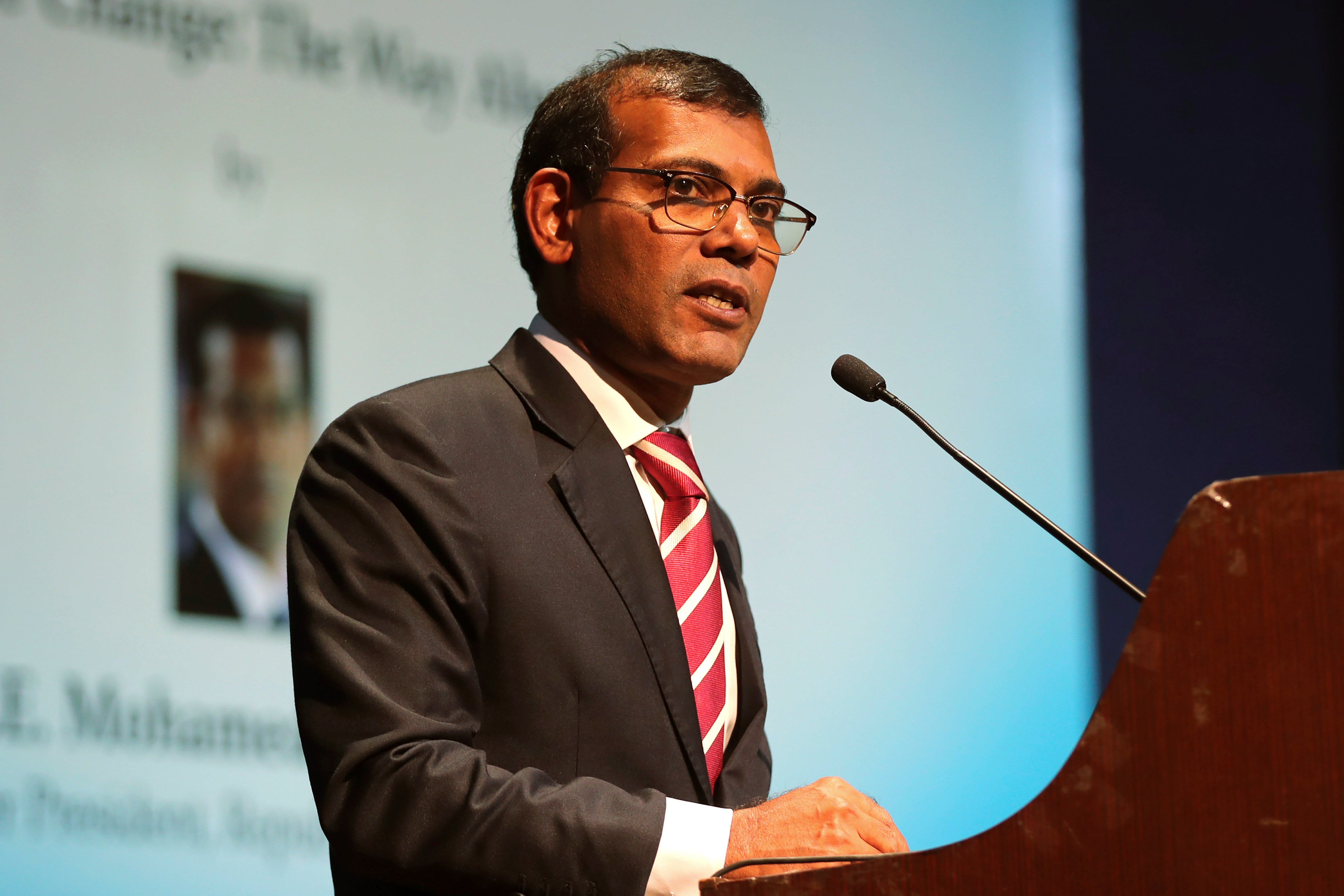Trouble in paradise: Bomb attack on former Maldives president exposes threat of extremism on resort island
The Maldives was shaken by a major bomb blast this week. With a recent history of locals joining ISIS, experts tell Shweta Sharma about the fears raised by militants returning home


The speaker of parliament and former president Mohamed Nasheed was injured in a targeted bomb blast that rocked the capital Male on Thursday with some describing it as “an attack on Maldives’ democracy and economy”.
While no terrorist group has come forward to claim responsibility for the attack, experts say it is possible a major homegrown outfit could be behind the attack, in a country that has “a history of pro-Islamist ideology among some of its population”.
Speaking to The Independent, Kabir Taneja, an expert on the Middle East and terrorism, says the country has the highest per capita number of foreign fighters who went to Syria to fight for the Islamic State group.
“There is a major threat from fighters who might have joined Islamic State, fought there and returned to their country bringing violence home,” Mr Taneja, a Fellow with Strategic Studies programme at global think tank Observer Research Foundation, says.
On Thursday, the blast occurred after a device attached to a motorcycle exploded just as Mr Nasheed was about to get into a car outside his home. He sustained multiple injuries but is currently in stable condition in the hospital.
Maldives police said on Friday they have zeroed it down to four people who could be connected to the attack on the former president. Efforts are being made to identify them and make the arrests.

“From the scene of the attack, individuals with suspicious activity have been noticed. We are now working to take the necessary steps for a criminal procedure case. We have noticed four people of interest in relation to this attack,” Commissioner of Police Mohamed Hameed said.
Mr Hameed said the materials used in the blast have been identified as life-threatening explosives and the case is being investigated as “highest priority”.
But the commissioner said they have not yet identified any connections to foreign organisations.
Mr Nasheed, who was the Indian Ocean archipelago’s first democratically elected leader, was a verbal critic of hardline Islamists of the country and pushed back against Wahabi ideology, an extremely orthodox sect of Sunni Muslims.

Mr Taneja says that the former prime minister was a “high-value target” from a terrorism point of view.
“There is a fairly recent history of fair few people known to have travelled to Syria and Iraq to fight for Islamic State. Considering it’s a small size, the country has the highest per capital foreign terrorist fighters in other countries,” he said.
Out of a total population of 350,000, Maldives has about 250 fighters and 1400 alleged radicalised individuals, according to a publication by S Rajaratnam School of International Studies (RSIS), Singapore.
He says even when someone stakes a claim in the coming days we can’t be sure if they are coopting the attack or they actually managed to pull it off.
Mr Nasheed has faced multiple political fallouts during his political career. He was banned from contesting the 2018 presidential elections after being convicted on criminal charges. He went into self-imposed exile, only to return after his party won the 2018 presidential elections and then entered parliament.
His presidency ended a 30-year autocratic rule, but his own term from 2008 to 2012 ended when he resigned amid protests.
“Under his presidency, we have seen a pushback against Islamist ideology, which has gained some traction as relations between Male and Gulf states increased over the past decade. There has been a pushback since, and this continued as part of the country’s security policy since,” Mr Taneja said.
A tourist magnet – some 115,000 Britons visited the islands in 2017 – Maldives is home to a large population of Sunni Muslims, making up more than 1,100 people. Some pockets have more conservative or even radicalised individuals, some said to be converted by hardline preachers.

Commissioner of Police Mr Hameed said last year that hundreds of extremists went to Pakistan and Afghanistan before the Syrian civil war. He added that some of them returned to Maldives to spread radical ideologies.
In 2020, the Islamic State claimed responsibility for the attack on five speedboats and two dinghies in Mahibadhoo island, central Maldives. Islamic State said its “soldiers of the caliphate” set fire to several boats to carry out the attack.
Join our commenting forum
Join thought-provoking conversations, follow other Independent readers and see their replies
Comments